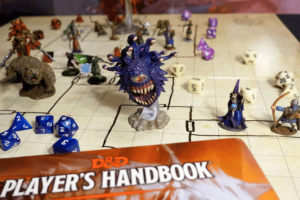A reader emailed me the other day with the question, “What instrument should I play?” The right musical instrument for you is ultimately a personal preference. But, there are a few things you need to consider before making your final pick.
In this article, I’ll describe how to choose the best instrument to play.
What instrument should you play? Some instruments are easier to learn than others. I recommend you choose an easier instrument so that you can learn it faster and not become discouraged. You can then learn a harder instrument afterward if you choose.
The ukulele is my favorite recommendation for you to start playing. It is not only easy to play, but it is also affordable, lightweight, and great for songwriting.
The top 10 instruments I recommend you learn to play are as follows:
- Ukulele
- Recorder
- Flute
- Harmonica
- Drums
- Piano/Keyboard
- Clarinet
- Saxophone
- Harp
- Electric Guitar
Read on to learn more about what instrument you should play and how to choose.
Also, we hope you find the links here useful. We may get a commission if you purchase something through a link on this page, so thank you!
Also, for an excellent harmonica, take a look at our top pick, the Other Harmonica (F-20J-G):
Click here to see it on Amazon.
What Instrument Should I Play? – Top 10 Picks
The below 10 instruments are ones I recommend you learn to play because they are not too difficult. They are also fairly affordable and are popular instruments so you can find online resources for learning them.
1. Ukulele
The ukulele makes me think of the sun, clear-water beaches, and Israel “IZ” Kamakawiwoʻole’s version of “Somewhere Over the Rainbow.” Its happy and relaxing tone makes it a great musical instrument to play, regardless of whether a person is a musician or a non-musician.
Compared to the guitar, the ukulele is much easier to learn. Give yourself ten minutes, and you’ll surely pick up the basics within that period. If you want to play full songs with proficiency, you need around three to six months.
What type of ukulele is best for first-timers? Pick any of these ukulele sizes: soprano, concert, and tenor. Among the three, the soprano ukulele is the lightest and smallest. It’s suitable for players of any musical background or skill level.
2. Recorder
A recorder is a type of flute with an internal duct (passageway) and fipple (mouthpiece). The structure of a recorder is composed of three parts called joints:
- Head joint (houses the mouthpiece)
- Body joint (main pipe)
- Foot joint (can be rotated to change the position of the tone hole)
Back in the 14th century, students used recorders as a practice flute. People, even children as young as three, can be good at playing this musical instrument once they master the basics (blowing, fingering, and tonguing).
3. Flute
The third instrument on our list of “what instrument should I learn” is the flute. You might ask, “What’s the difference between a recorder and a flute?” Their most obvious difference is the way a flutist or a recorder player holds them.
- Flute: A flute is held sideways (9 o’clock direction) at a 45-degree angle.
- Recorder: A recorder is also held at the same angle, but it should be pointing a distance away from the chest.
At a beginner level, you can learn to play many notes on the flute in just a few days or weeks. However, if you really want to be good at it, enroll yourself in a flute program that’s appropriate for your level, so you can spend a lot of time practicing.
4. Harmonica
The nicest thing about the harmonica is that you can place it inside your pocket and take it anywhere. Plus, it’s almost impossible for it to sound awful, even if it’s your first time to use it.
The harmonica isn’t really a popular first musical instrument for kids. However, kids of all ages, particularly those ages 4 to 5 years old, can start creating music and have fun playing the harmonica.
Beginners who are into blues, country, pop, or country music would love the 10-hole harmonica (tuned to the key of C). The Suzuki F-20J-G Fabulous 10-Hole Diatonic Just Temperament Harmonica, Key of G is made of high-quality materials.
Click here to see it on Amazon.
It produces a rich sound, making it worth the extra money. Chromatic harmonicas are perfect for you if you’re a jazz or classical music type of person.
5. Drums
If you are still asking yourself “What instrument should I play?” continue reading! Drums are one of the best and easiest instruments you can learn to play.
Some people only need half an hour to learn the basic beats on drums. However, becoming proficient at drumming is another story. On average, you need a year or two (or longer) of constant practice and learning to become a reliable, highly skilled drummer.
Right Age to Learn Drums
Like most musical instruments, people can start learning the drums at any age. If you’re interested in drum lessons for your kids, the best time to do it is when they’re already 6 or 7 years old. And whatever you do, avoid buying toy-store drum sets. Get your younger children (between 3 and 7 years of age) a five-piece junior starter drum set.
For teenagers, a full-sized starter drum set is a good place to start. The Mendini by Cecilio 16 inch 5-Piece Complete Drum Set is a budget-friendly, five-piece drum set for adults and teens:
It already includes toms, a bass drum, a snare drum, hi-hats, stands, sticks, and a stool.
Click here to see it on Amazon.
Why choose drums? There are many great reasons I could think of. For instance, it helps you feel calm and relaxed. Research also shows that it helps the two sides of your brain to work together, making it easier for you to focus and remember.
6. Piano/Keyboard
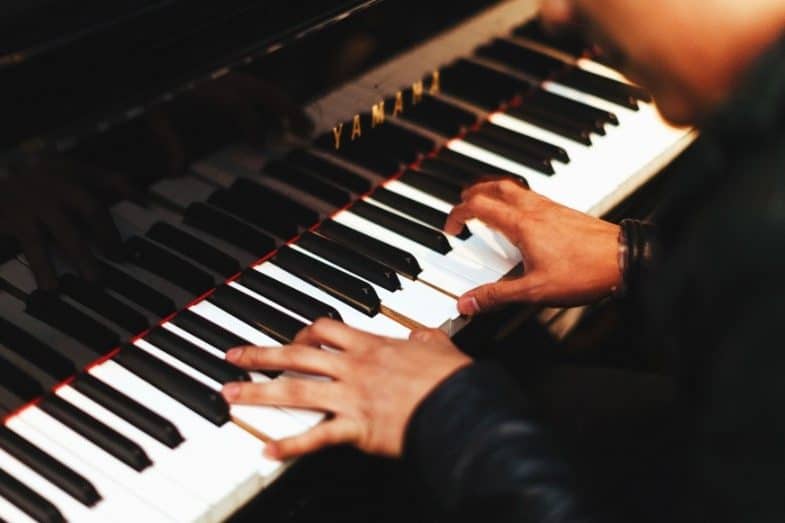
The piano can be both easy and difficult to learn. Playing the piano at a beginner level will take around six months to three years. Reaching the advanced level will take you approximately 10 to 15 years.
Young children aged 3 or 4 can already start taking piano lessons. Make sure that their early piano lessons are based on fun and interactive games or activities. Your child should also have access to a piano years before his or her formal lessons begin–if you really want to help your child achieve success in piano playing.
The best age for beginning piano lessons differs for every child. Some signs that your child is ready for piano are follows:
- Can identify numbers from one to five
- Identifies letters from A to G
- Ties his or her own shoelaces
- Can focus on an activity for 10 minutes or longer
7. Clarinet
The clarinet is a very popular instrument to learn in modern times. It plays a crucial role in school marching bands, small instrumental groups, and orchestras.
Anybody with no prior experience in playing any musical instrument would find the clarinet easy to learn and handle. Thus, it’s a suitable choice for beginners and even better for children and young musicians.
Is the clarinet easier to learn than a flute? That’s up for debate.
Some reasons why clarinet is a good instrument to choose are as follows:
- It’s versatile. The sound it creates can easily shift from a soft, relaxed pitch to a more aggressive one.
- If you’re a jazz music lover, the clarinet is an excellent option for you.
- It’s a lot cheaper than other musical instruments, such as the piano.
- A plastic clarinet would last for years and requires little maintenance.
However, clarinets can be expensive. But if you know where to look, you’ll surely find one that fits your budget, just like the Eastar B Flat Clarinet Commander with Silver Keys and Hard Case:
Click here to see it on Amazon.
8. Saxophone
Eighth on our list of “what instrument should I learn to play” is the saxophone. Saxophones make you look “cool.” The sound it produces is also smooth, sultry, and relaxing. For these reasons, it’s not surprising why many aspiring musicians are drawn to it.
It might look difficult, but the sax is actually easy to learn. That’s most likely because of its much easier key-finger system and sound production (compared to other wind instruments).
Children can take saxophone lessons starting at the age of 7 or 8 years old. Among the fourteen types of saxophones, the alto saxophone is suitable for beginners because of its small size (around 25 inches long). Due to its small size, you won’t need a lot of lung power to play the alto sax.
9. Harp
Is it truly easy to learn the harp? Yes and no.
Yes, because it sounds great right from the start. It’s also relatively easy to play basic pieces after taking a few lessons. In fact, you might only need a few minutes to learn your first song on the harp.
No, because it’s difficult to be really good at it. There are many reasons why. Unlike guitars, which have frets that indicate notes, you’ll have to rely on muscle memory and constant practice to know where the notes are. In general, you need at least three years to become technically good at playing the harp.
A harp that’s small or with fewer strings doesn’t necessarily mean it’s suitable for beginners. A beginner harp usually has 47 strings.
10. Electric Guitar
One year: That’s the typical amount of time you need to play intermediate-level songs and feel more confident playing barre chords (using one finger to press multiple strings at the same time on a single fret). In general, you’ll already know if you have the passion for learning the electric guitar and the potential to become really great at it within the first three to six months.
One reason electric guitars are an appealing choice for beginners or young children is its smaller size (when compared to acoustic guitars). When buying your first electric guitar, consider the following factors:
- Appropriate size
- Great sound
- Matches your playing style and music genre
You don’t need to limit yourself to the musical instruments above. If you want, you can even learn more than one instrument. With the help of a nurturing and skilled teacher, you’ll eventually feel confident and adept at playing whatever instrument you choose.
See this video for more tips on deciding what instrument to play.
Choosing a Musical Instrument Based on Personality

Do you know your personality affects your musical abilities?
Research shows that a person with a high level of openness is more likely to be musically gifted. [1] Don’t worry if you’re not an “open” person. There’s bound to be a musical instrument that’ll fit your personality and skill level.
Let’s see which musical instrument is appropriate for you based on some of the Myers-Briggs personality types.
- ISFJ (Introvert, Sensing, Feeling, Judging): Flute
- INTP (Introversion, Intuitive, Thinking, Perception): Cello or clarinet
- ESFJ (Extravert, Sensing, Feeling, Judging): Harp
- INFP (Introversion, Intuitive, Feeling, Perception): Piano
- ISTJ (Introvert, Sensing, Thinking, Judging): Trumpet
- ESTP (Extravert, Sensing, Thinking, Perceiving): Drums
- ISTP (Introversion, Sensing, Thinking, Perception): Saxophone
- ENTP (Extravert, Intuitive, Thinking, Perception): Electric guitar
- ENTJ (Extravert, Intuitive, Thinking, Judging): Bagpipes
Note: This is just for fun and shouldn’t be taken too seriously.
What’s the Best Age to Learn Musical Instruments?
One common misconception is that it’s too difficult to learn a musical instrument as an adult. The truth is, you can take music lessons and learn to play musical instruments at any age. Your age shouldn’t stop you from exploring your musical skills. With patience, practice, and the right guidance, you or your child can learn to play any musical instrument.
Most music teachers recommend that parents enroll their children in music lessons when they turn 5 years old. At that age, children can already sit and concentrate for at least 15 to 25 minutes. [2]
However, if you have a three-year-old child who’s already showing interest in music, you can nurture that interest at an early age. There’s evidence suggesting that there’s a promising opportunity from birth to nine years of age for creating a good “feel” for music in children. [3]
In a 2012 study, researchers from McMaster University discovered that musical training early in life greatly helps children, even before they’re able to talk or walk. [4] These researchers assigned babies and their parents to either one of the two music classes:
- Group 1 – The babies and their parents participated in a weekly session of interactive music-making, which is a child-directed approach to music-making to promote a child’s potential. Other activities included were action songs, nursery rhymes, lullabies, singing, and playing percussion instruments.
- Group 2 – They spent a few months playing at various toy stations, while “Baby Einstein” recordings were playing in the background.
After six months, results suggest that babies who participated in the interactive music class showed signs of music pitch sensitivity. To be more specific, they prefer listening to a piano piece that stays in tune compared to a piano piece with notes outside of the key.
Children younger than five shouldn’t be pushed to master a musical instrument. During this time, the goal is to develop their passion for music and immerse them in a musical environment. For instance, you and your child could play simple interactive musical games.
Again, this article only serves as a guide when choosing the right musical instrument for you. Feel free to do more research and ask around. Try a variety of musical instruments to pick one that best fits your personality, situation (budget, available floor space, time restraints, etc.), favorite music genre, and physical limitations (if any).
Conclusion – What Instrument Should I Play
So to recap, what instrument should you play? I recommend you choose an easier instrument to play so that it doesn’t take as long to learn it. You can then learn a harder instrument afterward if you choose.
The ukulele is my favorite instrument I recommend you learn to play. It is not only easy to play, but it is also lightweight, affordable, and great for songwriting.
The top 10 instruments I recommend you learn to play are as follows:
- Ukulele
- Recorder
- Flute
- Harmonica
- Drums
- Piano/Keyboard
- Clarinet
- Saxophone
- Harp
- Electric Guitar
Related reading:
Oboe vs Clarinet – What Is the Difference Between Them?
Easy Clarinet Songs [Top 10 Easiest]
What Are the Most Popular Instruments? [10 Top]








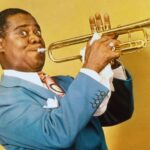

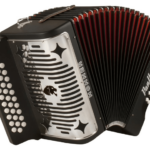
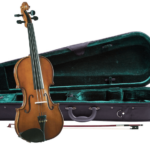
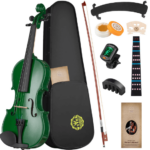
![Read more about the article What Instrument Does Kenny G Play? [Kenny G Instrument]](https://musicalinstrumentpro.com/wp-content/uploads/2020/11/what-instrument-does-kenny-g-play-300x200.jpg)
